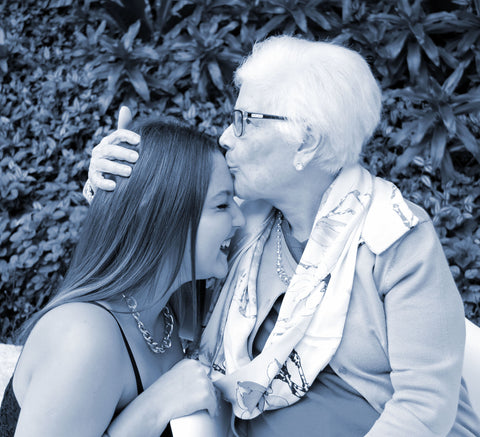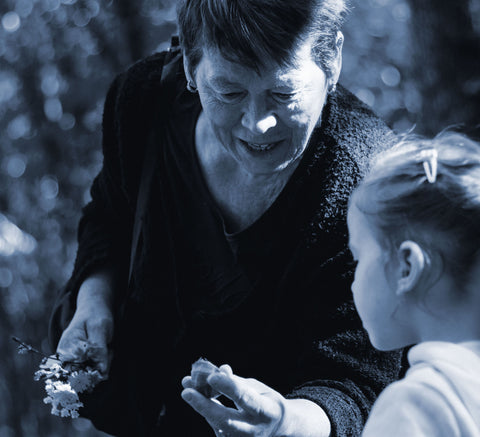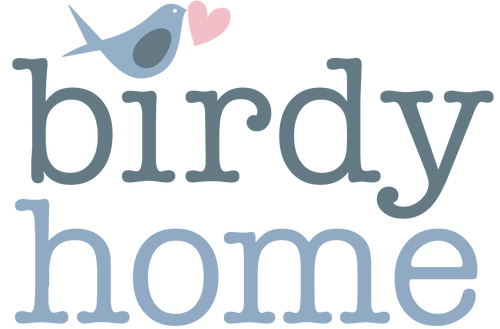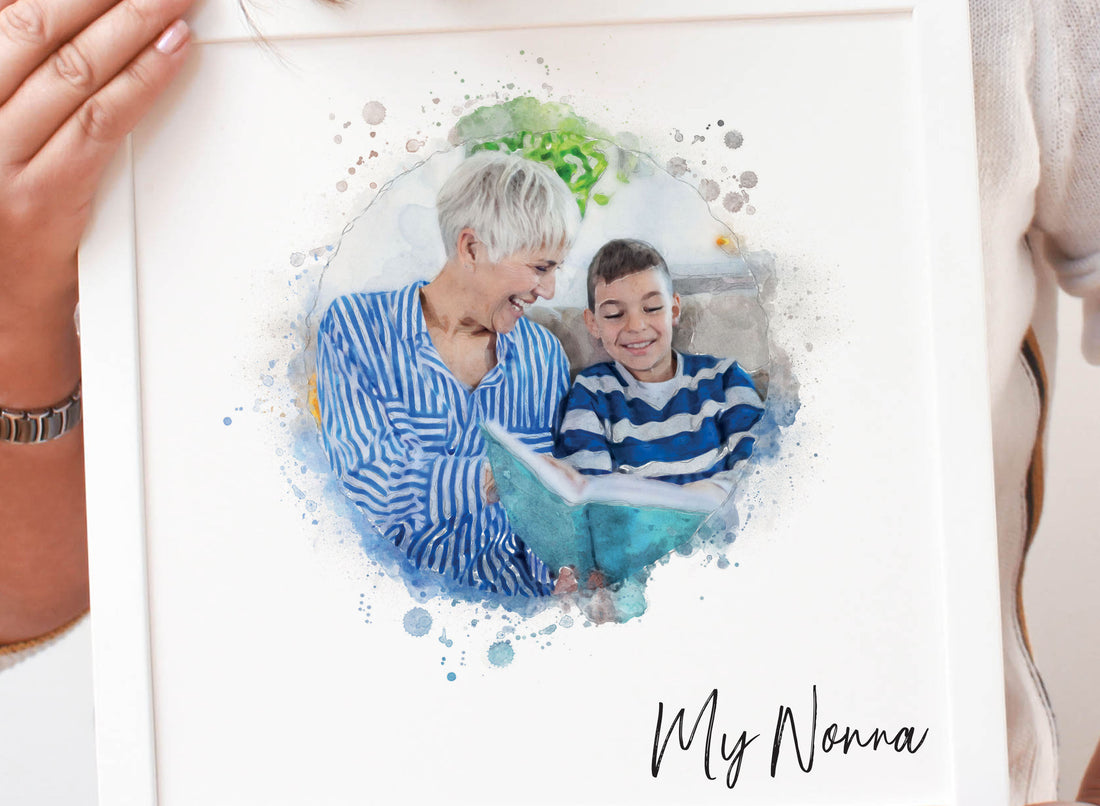What do the British call their grandmother?

Grandparents are a big part of a child’s life. They provide a sense of continuity and history, and provide adults to nurture them apart from their parents. There are a lot of things a kid can learn from their grandparents, and grandparents have a relationship with their grandchildren that is unlike any other relationship a kid can have. Not only that, but grandparents benefit from relationships with their grandchildren, both emotionally and cognitively.
Whether it’s ‘Nan’, ‘Gran’, ‘Granny’, or any variation on those, the English language has a wide variety of different terms for grandparents. In Britain, it’s influenced by region, social class and family tradition, and changes over time – our ancestors in the 20th and 19th centuries almost certainly had different terms for their grandparents than our children do today.
For British grandmothers the top five names in order of popularity at a national level are Nan (33%), Grandma (32%), Nana (24%), Nanny (22%) and Granny (14%). Only one-in-ten use the term Gran.
The name Nan is by far the most popular for a grandmother in the English seaside cities of Liverpool (65%) and Brighton (51%). Half of Welsh grandmothers are also referred to affectionately as Nans. Whereas Scots don’t like the name at all - with only 8% of grandmothers in Glasgow and 6% in Edinburgh being identified as such.
But what if you don't like these terms of address?
Some grandparents find “grandma” and “grandpa” too generic, old, and stodgy for them, and would prefer to be called by a different name.
Some grandparent nicknames are handed down through the generations by family tradition, and this brings some regional differences in grandparent nickname conventions. Keeping these traditions alive is really important to some families!
Shortened or simplified names help babies learn the basic sounds that their native language is made up of. These are some of the first and most important words that children learn.
You can choose your own grandparent nickname! It’s best to keep it to a limited number of syllables, so that kids who are just learning to speak can manage them. You can base them off of a family or regional tradition, or use a shortened form of grandpa or grandma, or you can even base them off your own name. Or, you can choose one that you just like.
Whatever you choose, use it consistently and your grandchild will pick it up quickly.

How about these modern names for Grandmother?
- Abuela - Spanish for grandmother and, these are popular alternative names for grandparents with Spanish heritage or family traditions.
- Gram - An alternative for Grandma that feels a little less formal and stuffy. For grandmothers looking for something a little less grand, Gram is a great choice.
- MeMaw - These alternatives to Grandma are most popular in Southern states. They can be used for grandparents or great-grandparents and are a special term of endearment.
- Nonna - Italian names for grandmother, Nonna ia a great alternative if you have an Italian family or Italian traditions.
- Oma - A less formal German translation, Oma are affectionate alternatives to Grandma.
- Grammie - This is the perfect child-friendly alternative to Grandma that many young children gravitate towards.
- GiGi - Gigi is easy to pronounce and a much more modern alternative to Grandma that many younger grandmothers may prefer to be called.
- YaYa - A popular Greek nickname for Grandma, YaYa or YaiYai are easy for young children to pronounce and hold special meaning for families with Greek heritage
- MiMi - Popular amongst grandmother’s who feel that Grandma is too old and stuffy, Mimi is a younger more modern alternative
- Mémère - Of French origin, and more specifically French Canadian, these are more formal alternatives to Grandma but a perfect way to honour your family heritage.
- Abuela (Spanish)
- Avó (Portuguese)
- Bà (Vietnamese)
- Babcia (Polish)
- Babushka (Russian)
- Bibi (Swahili)
- Bubbe (Yiddish)
- Dadi/Nani (Hindi)
- Grand-mère/Mémé (French)
- Halmoni (Korean)
- Jadati (Arabic)
- Lola (Tagalog)
- Nenek (Indonesian)
- Nonna (Italian)
- Nai Nai (Mandarin)
- Obaasan (Japanese)
- Oma (German)
- Ouma (Afrikaans)
- Thakurma/Didima (Bengali)
- Tutu (Hawaiian)
My personal favourite is Nonna, but that is because I would want to keep a reference to my Italian heritage. What would your favourite be?



